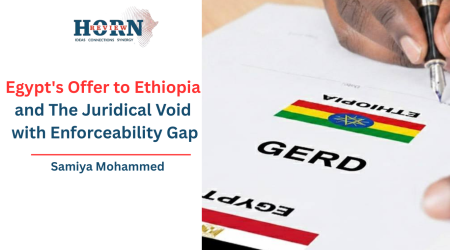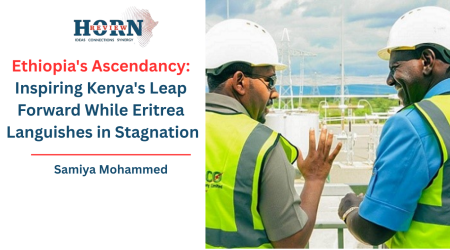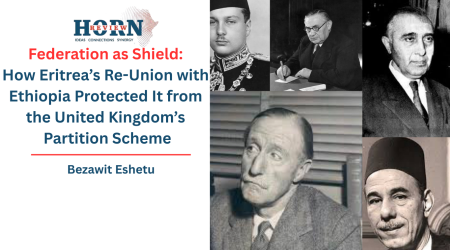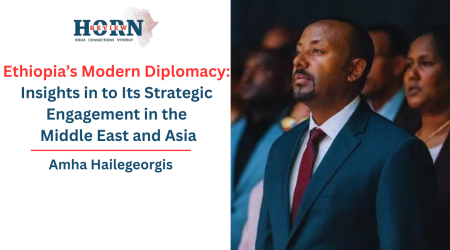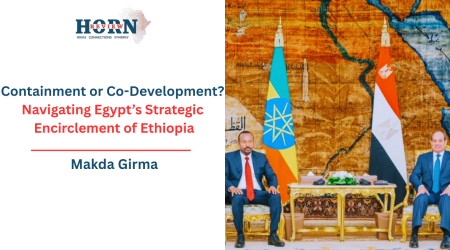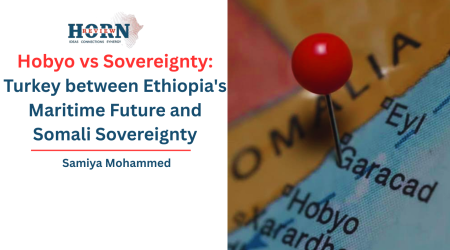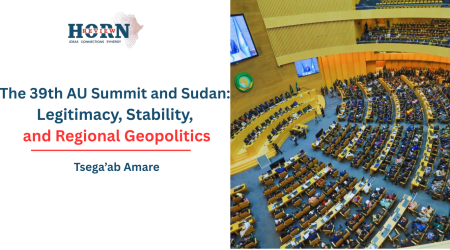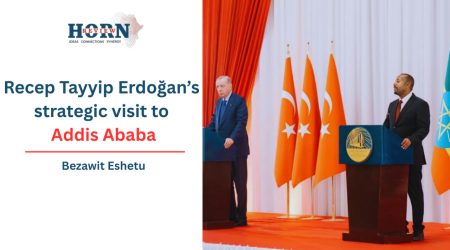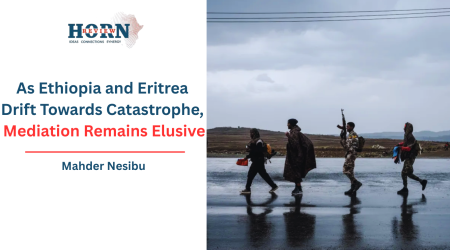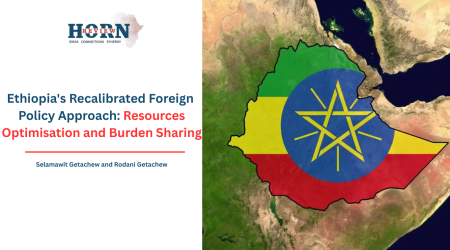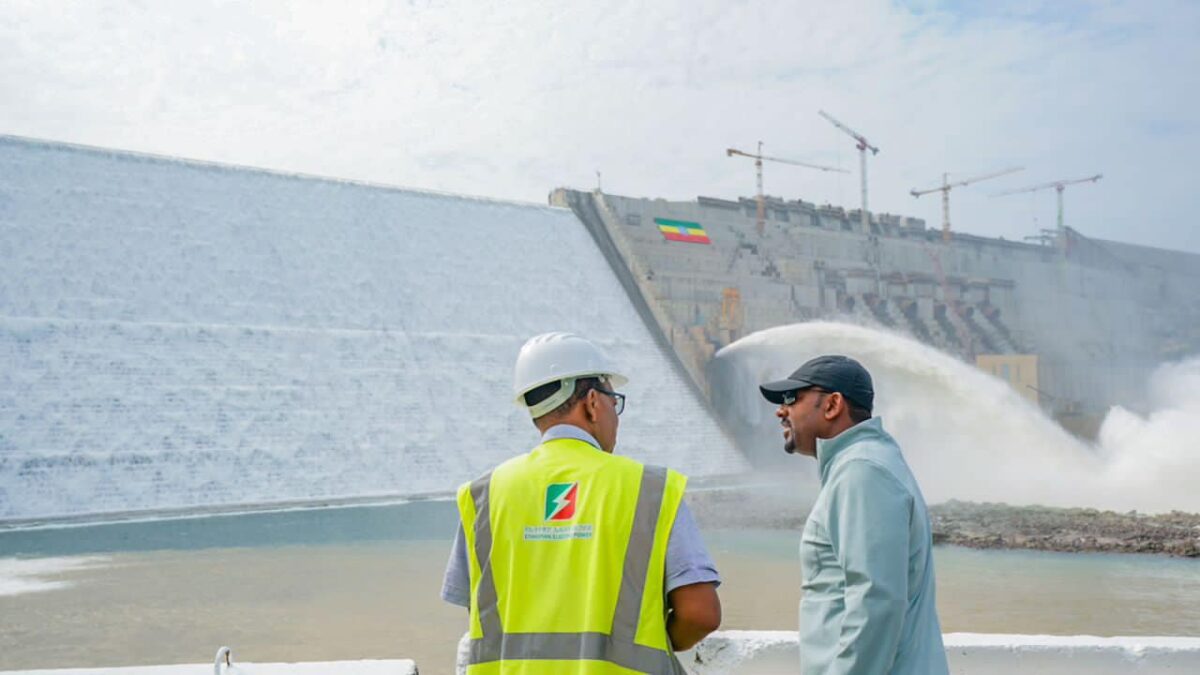
23
Sep
GERD As A Blueprint For Global Cooperation: Debunking Egypt’s Recent UN Water Security Claim
The Nile river stretching over 6,650 kms and traversing through 11 nations remains one of the world’s most geopolitically sensitive water courses. Ethiopia, as the source of the Abbay, conceived the GERD in 2011 to electrify 65 million citizens, fostering regional integration, and affirm continental cooperation.
On 9 September 2025, Ethiopia inaugurated GERD in the presence of prominent global and African leaders. President William Ruto of Kenya, President Omar Guelleh of Djibouti, President Hassan Sheikh Mohamud of Somalia, President Salva Kiir Mayardit of South Sudan, Prime Minister Russell Mmiso Dlamini of the Kingdom of Eswatini, Workneh Gebeyehu of IGAD Secretariat, Prime Minister Mia Mottley of Barbados, and Africa Union (AU) Commissioner Mohamoud Ali Youssouf, among others attended and stood alongside Ethiopia to witness this history.
The GERD is more than a dam; it is a monumental project and a continental milestone, built and realized through the collective sacrifices and determination of Ethiopians and embodying national pride, sovereignty, and the enduring spirit of developmental self-reliance. It delivers electricity to millions, integrates regional power grids, curbs floods, regulates flow, and offers regional integration.
Yet, even as Ethiopia and Africa celebrated, Egypt once again turned to the United Nations Security Council (UNSC), alleging GERD is an “existential threat.” Its September 9, 2025 letter framed the dam as a unilateral action destabilizing regional peace.
GERD as a Development Project, Not a Security Threat
Hydropower dams by their very nature are instruments of development, not acts a security threat. The GERD generates over 5,000 MW of electricity without diverting or consuming Nile waters. It benefits extend to downstream states by stabilizing flows, reducing sediment, and offering energy cooperation.
Egypt’s securitization claims contradict the UN General Assembly’s Resolution 2625 (1970) on Friendly Relations and UNSC’s Resolution 1625 (2005) that link peace and stability are reinforced by development and cooperation, not undermined by it. By comparison, Egypt’s own Aswan High Dam, with a reservoir more than twice the size of GERD’s, was never treated as a matter of international security.[1] The GERD’s uniqueness lies (not) in its scale, but in symbolism: a domestically financed, sovereign project that redefines Africa’s development narrative.
Egypt’s securitization of GERD reflects hydro-hegemony dressed and camouflaged as law. Scholars from Elisa Cascao to Makane Mbengue stress that securitizing water projects undermines cooperation, while regional legal instruments such as the Nile Basin Cooperative Framework (CFA) prioritize equitable utilization and cooperation.[2] John Waterbury highlights that upstream development projects can coexist with downstream interests when principles of no significant harm and equitable utilization are respected.[3] These scholars’ perspectives underscore that securitization of water resources is a politically driven narrative, while regional mechanisms provide sustainable dispute-resolution pathways.
Egypt’s Referrals to the UN Security Council
Egypt has repeatedly appealed to the UNSC 2020, 2021, 2024, and now 2025 seeking to frame GERD as a global security matter and to push for intervention regarding Ethiopia’s filling and operation of the GERD. In June 2020, Egypt and Sudan warned the UNSC of Ethiopia’s planned first filling. Ethiopia, in this claim, countered that its actions complied with the 2015 Declaration of Principles (DoP) and that Egypt’s appeal was an attempt to internationalize an African issue.[4] In September 2021, the UNSC urged the resumption of AU-led negotiations. Egypt welcomed this as recognition of its security concerns, but Ethiopia saw it as a diplomatic victory that blocked Egypt’s push for binding intervention. Subsequent complaints in July and September 2024 echoed similar themes, with Ethiopia responding that staged filling aligned with the DOP and technical recommendations, science-based and transparent filling schedules, demonstrating compliance with principles of equitable and reasonable utilization.
Following the GERD’s inauguration in September 2025, Egypt denounced Ethiopia’s action as a unilateral breach of international law. Ethiopia reaffirmed its sovereign right, emphasizing that GERD is a hydroelectric power, not a consumptive, project, designed for cooperative benefits for all riparian states.
From Egypt’s repeatedly submitted letters to the UN against the GERD since the inception of the Project, often in anticipation of key GERD milestones. From these multiple ill naïve letters and correspondence, as an Ethiopian, we can substantiate the following characterizations:
- Framing GERD as a Global Security Threat: Egypt argues that Ethiopia’s unilateral actions threaten regional peace and stability, and infringe on its historical rights” to the Nile.
- Reliance on Colonial-Era Treaties: Egypt clings the 1929 Anglo-Egyptian Treaty and the 1959 Nile Waters Agreement as binding instruments, despite Ethiopia’s nonparty status.
- UN Charter Manipulation: By situating the dispute within the UNSC, Egypt has sought to portray Ethiopia’s sovereign development as a “threat” under Chapter VII, Article 39 of the UN Charter, requiring binding measures by the UNSC.
The UN Charter and Limits of UNSC Competence
The UNSC’s mandate under Chapter VII of the UN Charter is strictly limited to “threats to international peace and security,” typically involving state aggression, terrorism, or armed conflicts or other major conflicts.[5] The Council has never classified a hydroelectric project as such. The ICJ, in the Corfu Channel Case (1994) confirmed that threats to peace require evidence of imminent harm.[6] But in the 2025 claim, Egypt has provided no such evidence.
Article 33 of the UN Charter obliges states to resolve disputes peacefully through negotiation, mediation, or regional mechanisms.”[7] Ethiopia has done so, consistently engaging in AU-led talks and trilateral independent scientific cooperation with Egypt and Sudan. In contrast, Egypt’s bypassing of these mechanisms exposes its lack of legal footing.
In all it claims, history is responding against Egypt. The UNSC’s 2021 Presidential Statement (S/PRST/2021/18) has made its position clear and explicitly delisted GERD as a peace and security agenda item, deferring the issue to AU-led negotiations as the appropriate forum.[8] This affirms that GERD falls outside the Council’s jurisdiction. Egypt’s return to the Council in 2025 is thus not a legal necessity but political theatre.
The 1997 UN Watercourse Convention and the 1996 Helsinki Rules on the Uses of the Waters of International River, establishes two cardinal principles: equitable and reasonable utilization, and the obligation not cause significant harm.[9]
As an upstream state, Ethiopia has a legal right to an equitable share of the Nile waters for development and energy generation. Independent technical studies confirm that GERD’s operation causes no significant harm and offers downstream benefits such as improved flow regulation, reduced sedimentation, flood mitigation, and enhanced regional electricity cooperation.
Egypt’s reliance on the 1929 and the 1959 treaties is indefensible. Ethiopia was neither party to nor bound by these colonial-era treaties. Article 34 of the 1969 Vienna Convention on the Law of Treaties makes it explicit that “treaty cannot impose obligations on third states without consent.”[10] This has been upheld in the ICJ’s Namibian Advisory Opinion (1971), where the Court affirmed that obligations cannot be imposed on non-parties.[11] Egypt’s position is therefore inconsistent with both customary and treaty law.
Water Security under the African Union Legal Frameworks
The African Union’s legal frameworks reinforce Ethiopia’s legitimate rights over Nile waters. Article 22 of the African Charter on Human and Peoples’ Rights (ACHPR) recognizes “the right to development.”[12] The Nile Basin Cooperative Framework Agreement (CFA), which entered into effect on October 6, 2024, formalized equitable use and cooperation, replacing outdated colonial bargains.[13] Similarly, the ICJ in the Gabcikovo-Nagymaros Project Case (1997) affirms that development and environmental protection must be balanced through equitable utilization- a principle GERD fully embodies.[14] By obstructing GERD, Egypt is not defending law; it is denying Africa’s development rights.
Ethiopia’s Counter Response to Egypt’s Anachronistic Claim
In reply to Egypt’s 2025 complaint at the UNSC, Ethiopia, through its Ministry of Foreign Affairs, issued a clear, confident, and uncompromising clarification. In its letter to the UNSC, “Ethiopia asserted its sovereign right to harness the Abbay river and denounced Egypt’s outdated and hegemonic fantasies of water supremacy. It emphasized that the GERD is not a threat to regional stability, but rather the embodiment of a generational aspiration, a monument of resilience, and a covenant of hope for Africa. Ethiopia reminded the Council that the GERD is a beacon of development beacon, not a weapon of war. Its inauguration represents the realization of the people’s century-old determination to transform the Abbay into an engine of prosperity.[15] By rejecting Egypt’s unfounded accusations of unilateralism, Ethiopia reiterated that the dam is a shared blessing, not a hoarded privilege.
International law stands firmly on Ethiopia’s side. The GERD is fully aligned with the Declaration of Principles (2015) and the CFA (operational since 2024), both of which enshrines the principles of equitable and reasonable utilization as well as the sovereign rights of riparian states. Egypt’s reliance on colonial-era treaties crafted in the absence of upstream voices remains anachronistic, legally indefensible, and morally bankrupt.
Ethiopia also underscored a profound truth: If the GERD were truly a threat, global and regional leaders would not have stood proudly in Guba during its inauguration. Their very presence was a diplomatic verdict, a testimony that the GERD is not a flashpoint of division but a continental triumph, an emblem of African dignity, unity, and rebirth.
Ethiopia maintain that the GERD is a development project and therefore not properly within the jurisdiction of the UNSC, whose mandate is limited to threats to international peace and security. This is not a question of war but of development and justice matter. By dragging the matter before the UNSC, Egypt reveals not genuine security concerns but its entrenched obsession with preserving hydro-hegemony and the illusion of absolute control over the Nile.
Yet the GERD, by its very existence, shatters that illusion. It embodies a paradigm shift in the regional order from monopoly to shared responsibility, from dependency to agency, from hegemony to equity. Ethiopia’s upstream assertion is not defiance; it is renaissance. It repositions Africa in the global narrative, not as a beggar of aid, but as a giver of light.
In conclusion, the GERD is entirely consistent with international water law. It causes no significant harm but delivers clean energy, regional integration, and sustainable development. Egypt’s claims before the UNSC are the echoes of colonial arrogance-unfit for the 21st century.
Ethiopia, therefore, shall continue to demonstrate its readiness for peaceful negotiations within the CFA framework, support AU-led mediation, advance energy diplomacy, and engage with its regional and global partners to promote the GERD as a blueprint for cooperative development and sustainable peace.
By Horn Review Editorial
[1] John Waterbury, The Nile Basin: National Determinants of Collective Action (Yale University Press 2022) 154.
[2] Makane Moïse Mbengue, ‘African Water Law and Hydro Solidarity’ (2017) 22 African Journal of International and Comparative Law 1, 7.
[3] John Waterbury, The Nile Basin: National Determinants of Collective Action (Yale University Press 2022) 154.
[4] UNSC, Letter dated 19 June 2020 from the Permanent Representative of Egypt to the United Nations addressed to the President of the Security Council (S/2020/566).
[5] UN Charter (adopted 26 June 1945, entered into force 24 October 1945) Chapter VII.
[6] ICJ, Corfu Channel Case (UK Vs. Albania Merits) [1949] ICJ Rep 4.
[7] UN Charter (adopted 26 June 1945, entered into force 24 October 1945) art 33.
[8] UNSC, Presidential Statement S/PRST/2021/18. September, 2021
[9] UN Convention on the Law of the Non-Navigational Uses of International Watercourses (adopted 21 May 1997, entered into force 17 August 2014) and Helsinki Rules on the Uses of the Waters of International Rivers (1966).
[10] Vienna Convention on the Law of Treaties (adopted 23 May 1969, entered into force 27 January 1980) art 34.
[11] ICJ, Legal Consequences for States of the Continued Presence of South Africa in Namibia (South West Africa) notwithstanding Security Council Resolution 276 (1970) [1971] ICJ Rep 16 (Namibia Advisory Opinion).
[12] African Charter on Human and Peoples’ Rights (adopted 27 June 1981, entered into force 21 October 1986) art 22.
[13] Agreement on the Nile River Basin Cooperative Framework https://nilebasin.org/about-us/cooperative-framework-agreement accessed 12 September 2025.
[14] ICJ, Gabcíkovo-Nagymaros Project (Hungary/Slovakia) [1997] ICJ Rep 7.
[15] United Nations Security Council, S/2025/573, Distr.: General 10 September 2025 Original: English

